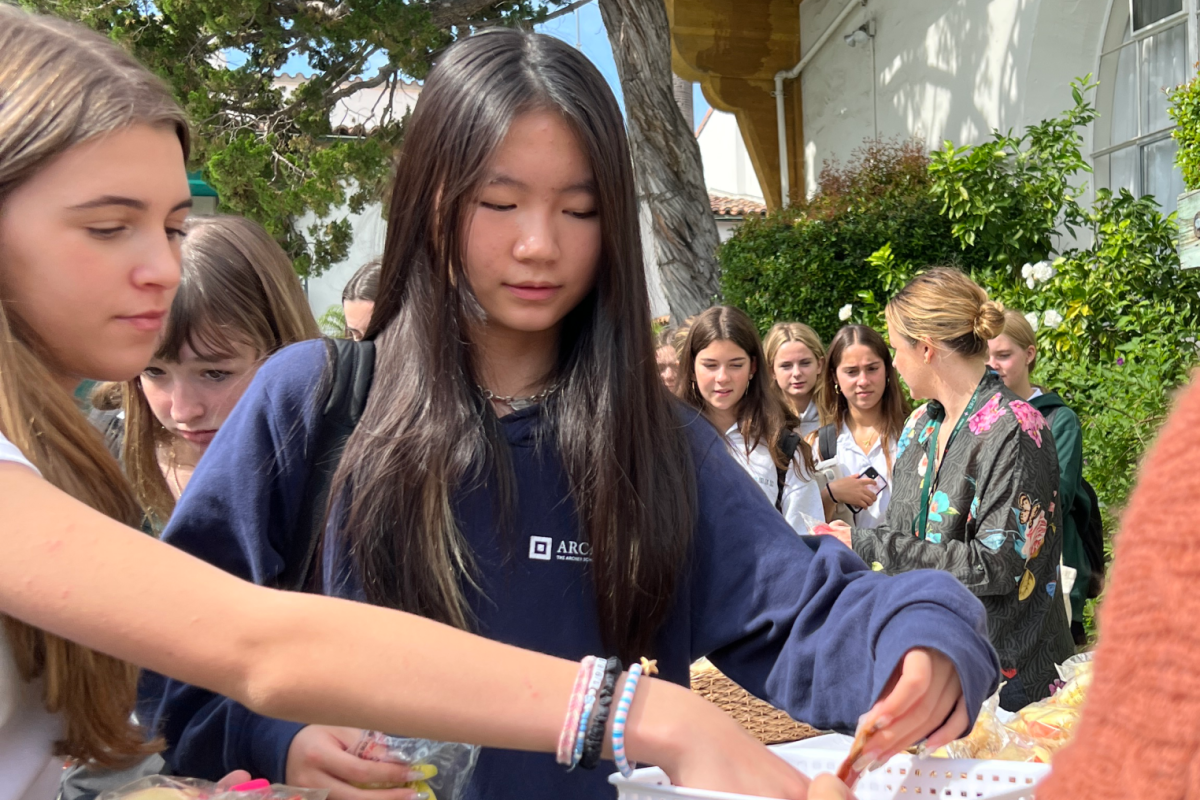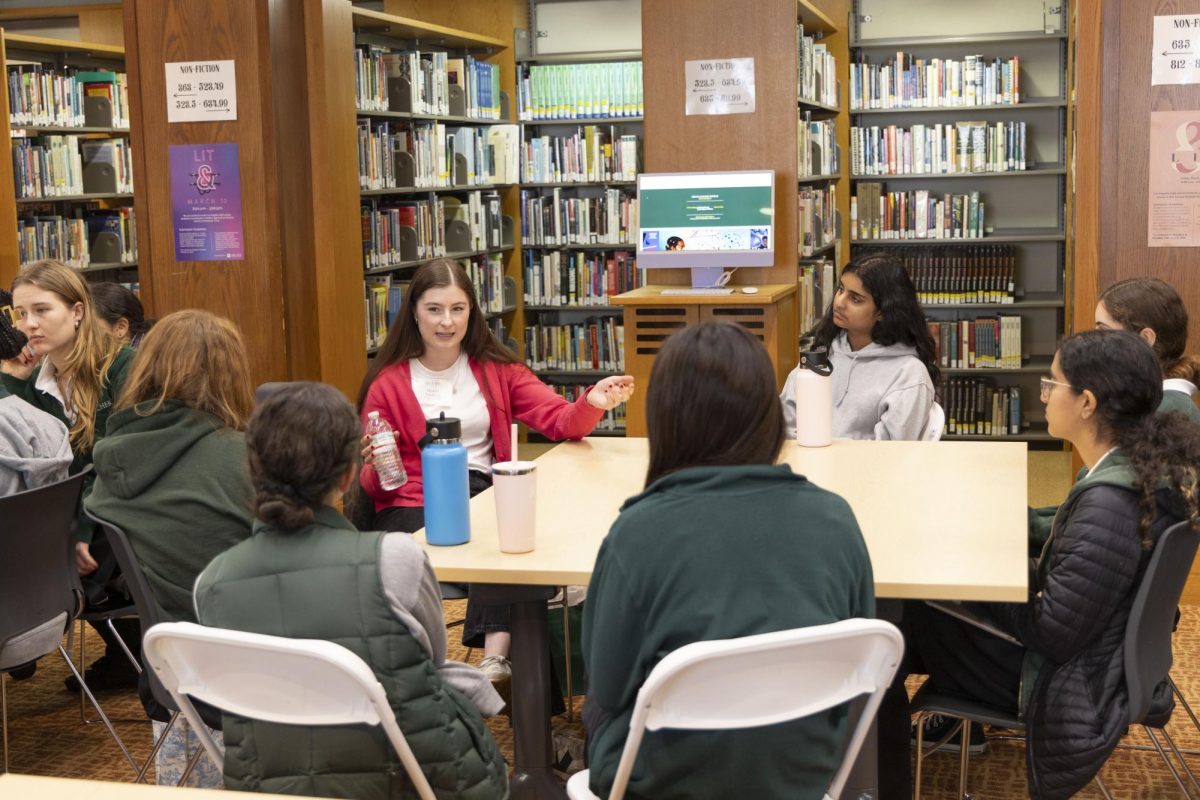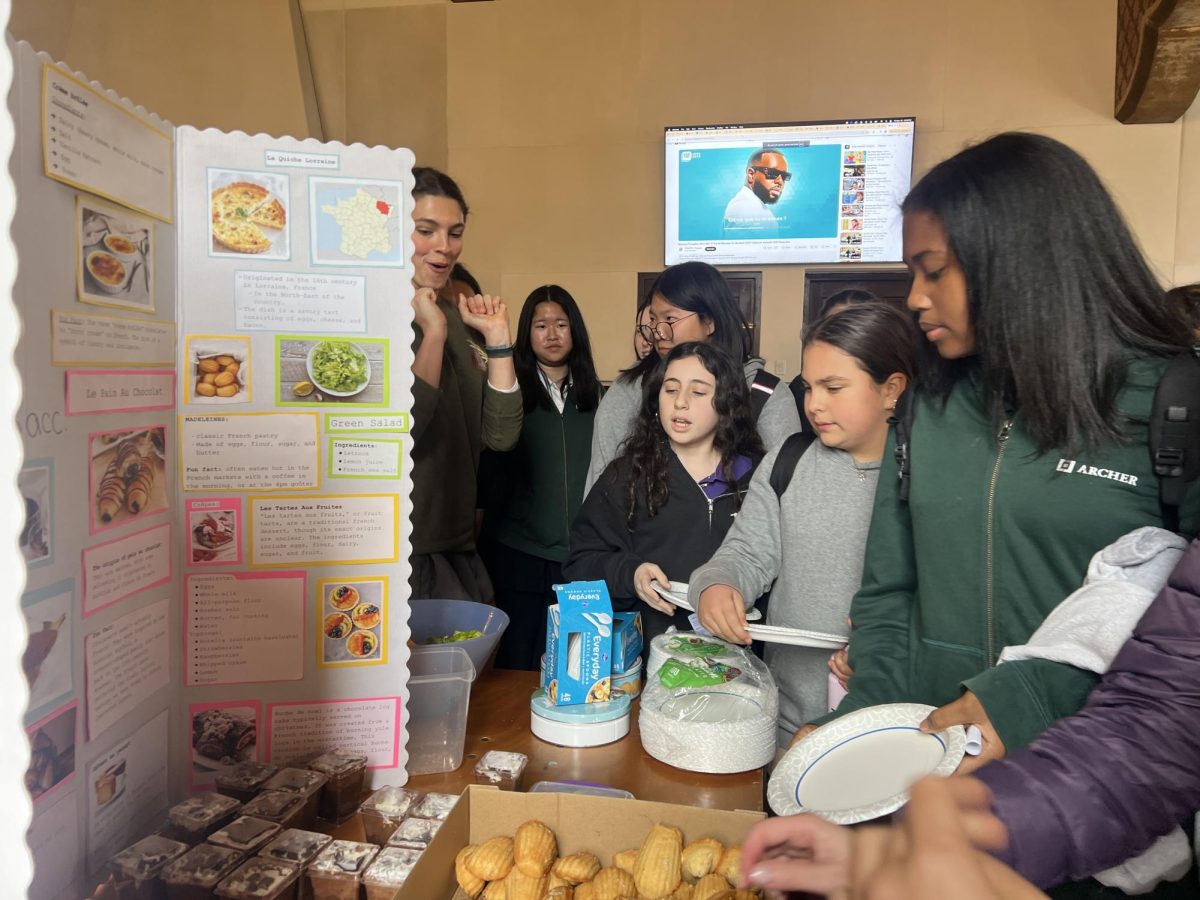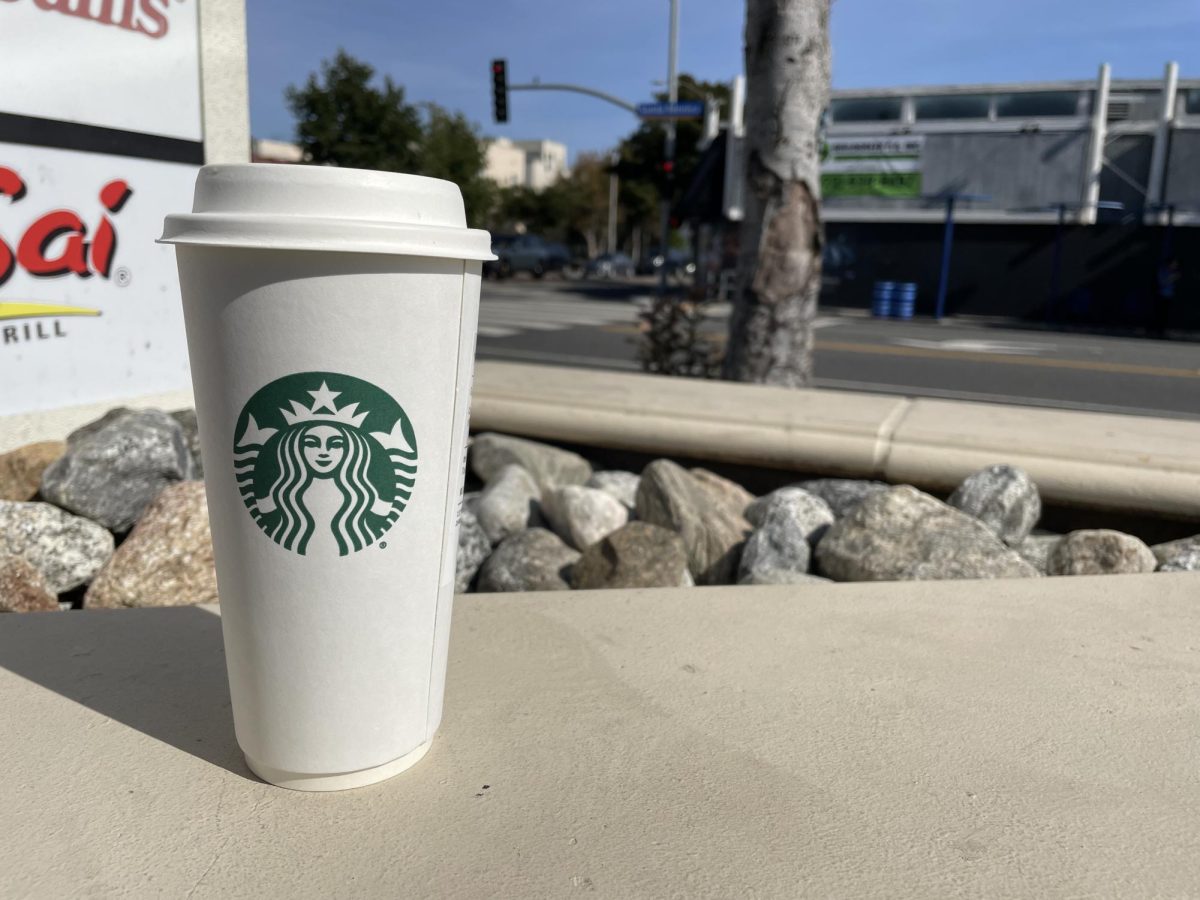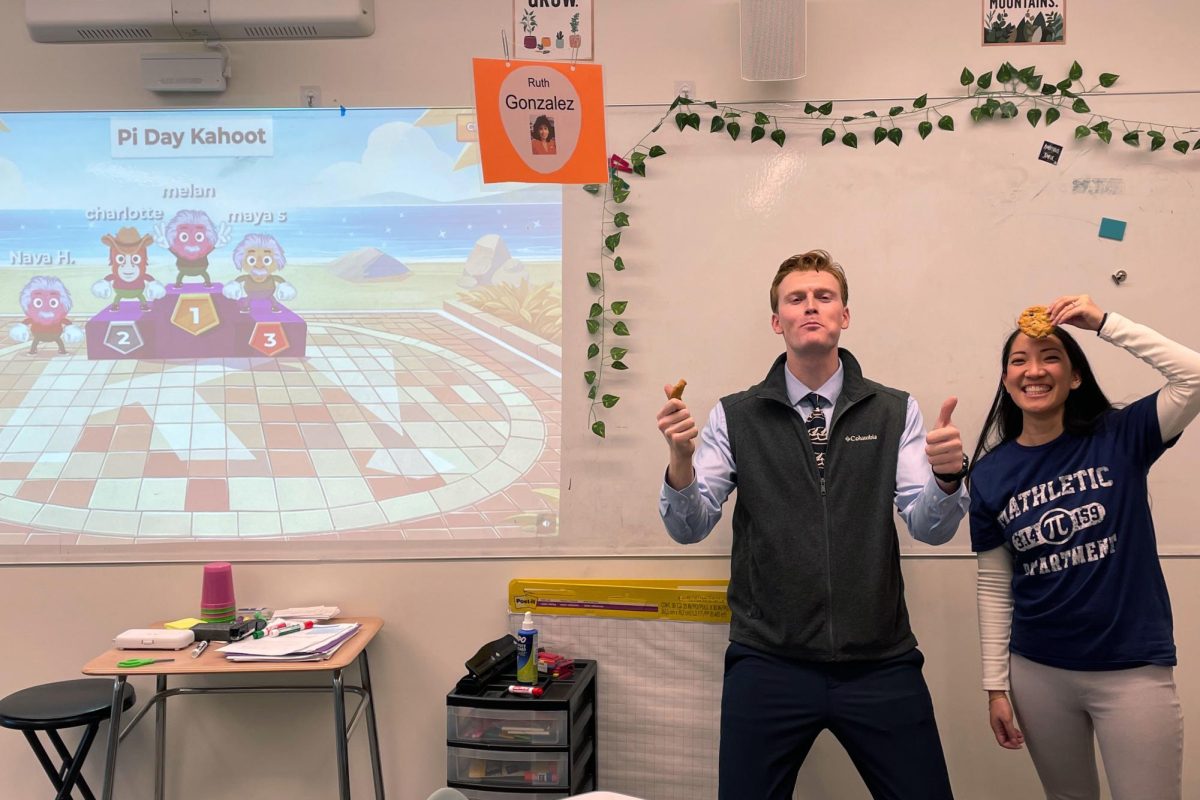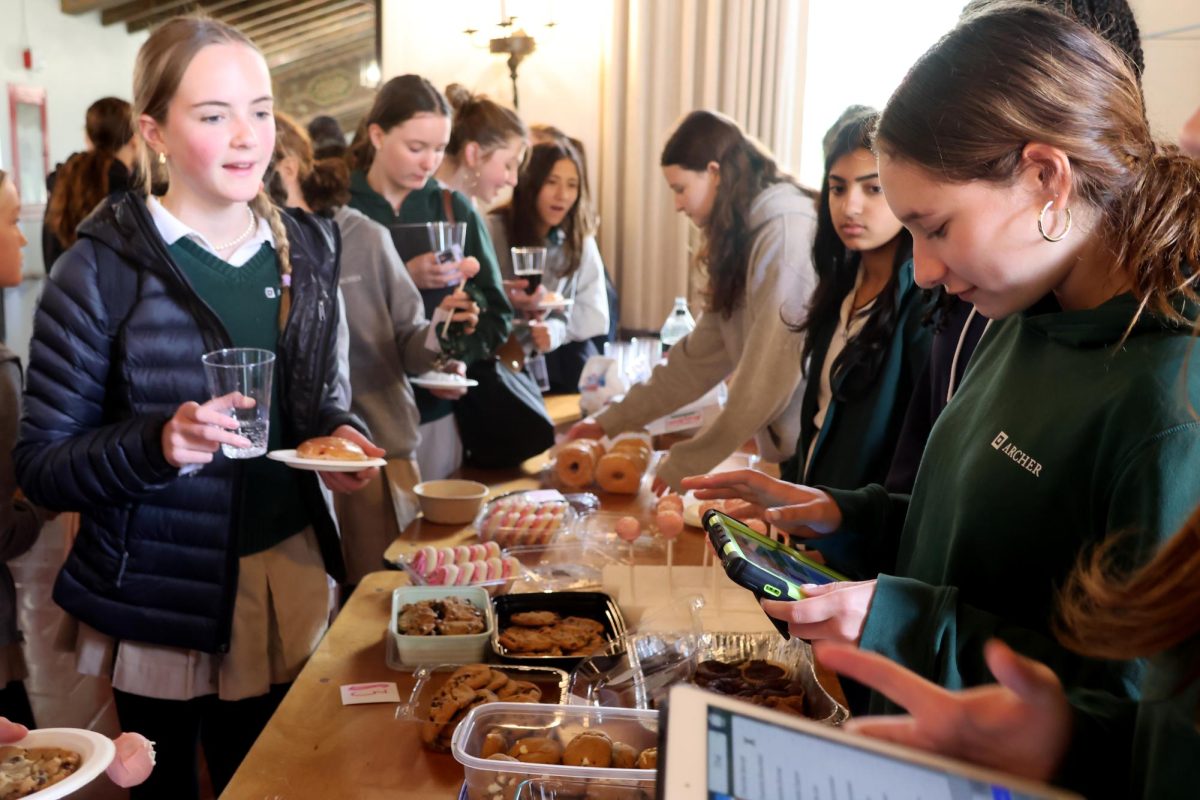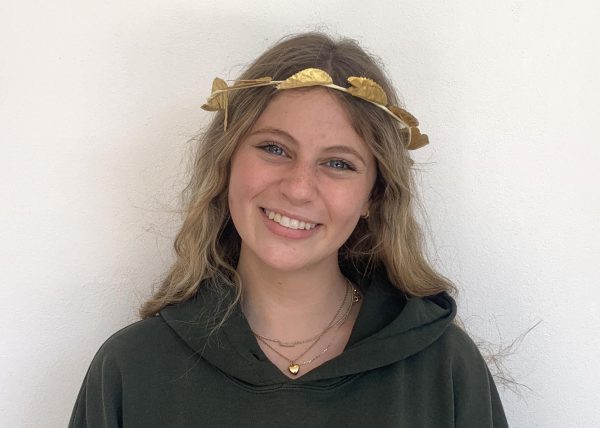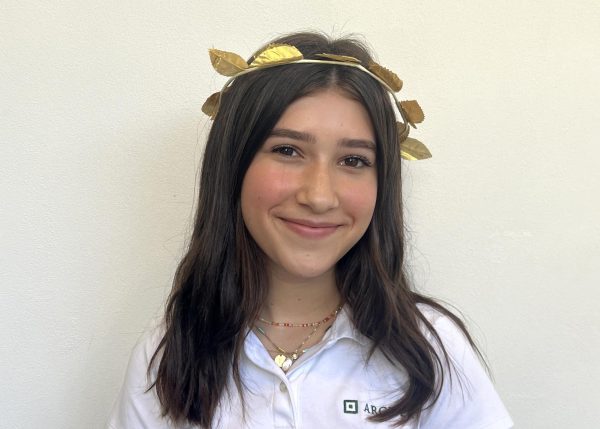Disclosure: This reporter is a board member of the Jewish Student Union, which coordinated the event.
As the sun went down on the evening of Sept. 15 and rose Sept. 17, Jews across the world celebrated Rosh Hashanah (רֹאשׁ הַשָּׁנָה), which means the first of the year or new year.
The Jewish holiday celebrates the creation of the world. Throughout three holy days, it is tradition for Jewish people to ask God for forgiveness. Every person celebrates Rosh Hashanah differently, and middle school students had the opportunity to learn about how Rabbi Jaclyn Cohen from Temple Isaiah celebrates.
Cohen presented to middle schoolers Wednesday, Sept. 13, in the courtyard about how she became a rabbi, what Rosh Hashanah celebrates and what the holiday means to her.
Cohen is the rabbi of Jewish Student Union leaders Lilly Dembo (’24) and Rebecca Lazarus (’24). The two students connected with Cohen to organize the presentation for middle school students. Dembo said she and Cohen discussed this year’s theme, striking brilliance, and how it connects to Judaism.
“We emailed Rabbi Cohen saying, ‘If you want to discuss anything, we just want to know what you’re going to talk about if you want any help with anything,’ so we met with her, and she was great,” Dembo said. “I’ve only heard positive responses about her presentation.”
Similarly, Friday, Sept. 22, in the courtyard, Cohen’s colleague Rabbi Dara Frimmer presented to upper school students about Yom Kippur, a holiday where Jewish people ask God for forgiveness through prayer and confession. Both rabbis shared insight into how they became part of their clergy and what each holiday meant to them.
Cohen began her presentation by teaching middle school students about the upcoming chain of Jewish holidays: Rosh Hashanah, Yom Kippur and Sukkot. She told students that, even though it might be traditional to sit in a temple for many hours during these holidays, that is not the case for every Jew. Instead, Cohen described the holiday as a way to “better yourself.”
“Rosh Hashanah and Yom Kippur, this whole season of holiness, is really about spiritual self-care,” Cohen said.
Riley Keston (’29) said she thought Cohen’s presentation was informative and interactive, and she enjoyed the story of how she became a rabbi.
“I really liked it when she was saying where she came from and how she worked her way up to being a rabbi,” Keston said. “I liked when she said how her community around her really inspires her.”
Cohen said she believes that the essence of the High Holidays is discovering one’s identity. She also said she believes that by asking for forgiveness, which is a Rosh Hashanah custom, one will improve themselves.
“[I am] this person who is figuring out her way in the world,” Cohen said. “I am trying to uncover who I’m supposed to be and what I’m supposed to focus on. What’s my relationship to something bigger than myself? Whether that’s God, a holy scripture or my community. Who am I? And who do I wish to be?”
Cohen involved students in her speech by opening the conversation up for questions and connected her own experience to womanhood and what it means to be a girl. Zoya Abyzov (’29) said Rabbi Cohen’s story about how she became a rabbi was meaningful to her.
“I am personally not Jewish, but I thought that she was really interesting,” Abyzov said. “[The presentation] was fun, and it was super informative. I loved it.”
Cohen concluded her presentation by letting students know that she is always open to any questions they may have about Jewish holidays or Judaism in general. She connected her presentation to Rosh Hashanah and Yom Kippur by ending with a statement about achieving goals and finding community.
“I can tell you without hesitation, whatever it is that you want to do, do it,” Cohen said. “Follow it, and find people who will help you and encourage those dreams.”



